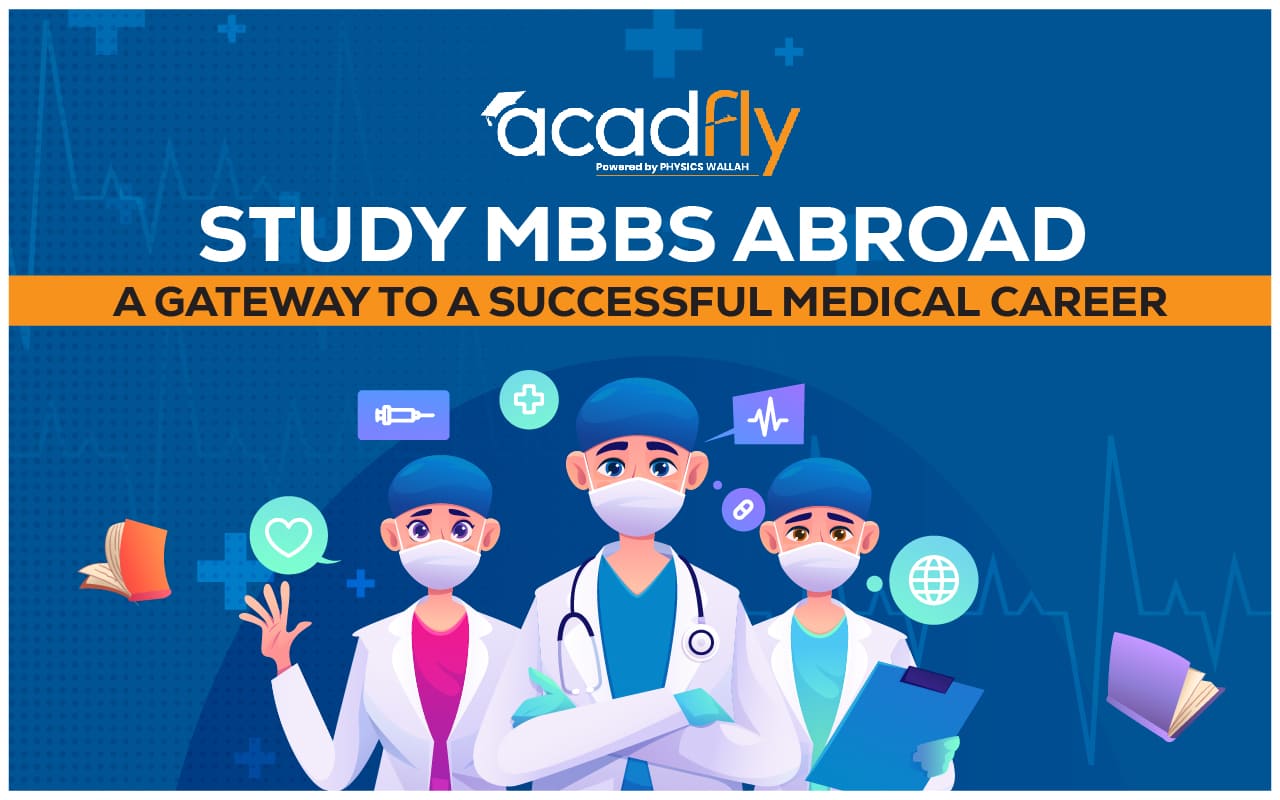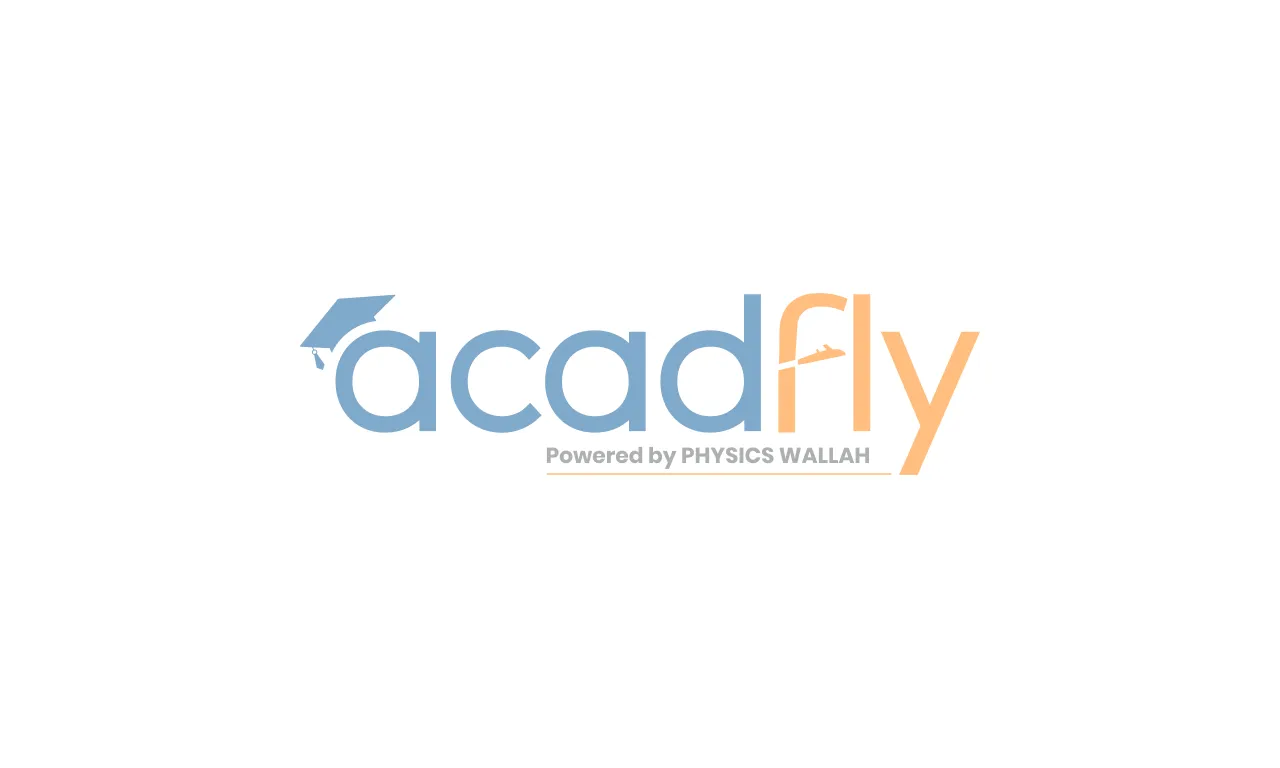
MBBS in Georgia has become a popular choice for Indian students due to its high-quality education, affordable fees, and English-medium instruction. The universities in Georgia offer globally recognized medical degrees, and the admission process is simple, requiring only a valid NEET score. The tuition fees for MBBS in Georgia range from $3,000 to $7,000 per year, making it an affordable option compared to many Western countries. Students can also benefit from a low cost of living and diverse cultural exposure. This makes Georgia an ideal destination for Indian students aspiring to become doctors.
About MBBS in Kyrgyzstan for Indian Students
MBBS in Kyrgyzstan has become a popular option for Indian students due to its affordable fees, high-quality education, and globally recognized degrees. The universities in Kyrgyzstan offer a comprehensive medical curriculum in English, which ensures that students from India can easily adapt. The admission process is straightforward, requiring students to meet basic eligibility criteria such as qualifying for NEET and having a good academic record in 12th grade. Kyrgyzstan offers a low cost of living, making it an attractive destination for students seeking quality education at an affordable price.
|
Category |
Details |
|
Duration of Course |
5 to 6 years |
|
Medium of Instruction |
English |
|
Eligibility Criteria |
50% in 12th grade (PCB) and NEET qualification |
|
Tuition Fees (per year) |
$3,500 to $6,000 |
|
Cost of Living |
$100 to $200 per month (approx.) |
|
Recognition |
WHO, UNESCO, and NMC (National Medical Commission) |
|
Admission Process |
Application, document submission, and visa approval |
|
Entry Exam Requirement |
No entrance exam required (NEET qualification necessary) |
|
Scholarship Availability |
Yes, for eligible students |
Studying MBBS in Kyrgyzstan offers a great opportunity for Indian students looking for affordable medical education. With universities offering English-medium courses and globally recognized degrees, Kyrgyzstan is an ideal destination for aspiring doctors
Why Study MBBS in Georgia for Indian Students?
Studying MBBS in Georgia has become an increasingly popular choice for Indian students in recent years. The country offers a high standard of education, globally recognized medical degrees, and affordable tuition fees compared to many Western countries. Here are the key reasons why Georgia is an ideal destination for Indian students pursuing MBBS:
1. Affordable Education
One of the most significant advantages of studying MBBS in Georgia is its affordability. Compared to other European and Western countries, the tuition fees in Georgia are relatively low. The cost of living is also quite reasonable, making it an attractive option for students who wish to pursue medical studies abroad without incurring a significant financial burden. The average tuition fee for MBBS in Georgia ranges from $3,000 to $8,000 per year, which is much lower than in many other countries.
2. Quality Education
Georgia is home to several world-class medical universities that offer high-quality education in the field of medicine. The medical programs are designed to meet international standards, and the universities in Georgia provide a modern learning environment with up-to-date resources, laboratories, and advanced technology. Many of these universities have been recognized by global bodies like the WHO, NMC, and UNESCO, ensuring that the degrees awarded are accepted worldwide.
3. No Entrance Exams
Unlike many countries where students need to clear tough entrance exams like NEET or specific university entrance exams, Georgia offers an easy admission process. Indian students are only required to qualify for NEET (National Eligibility cum Entrance Test) in India. There is no separate entrance exam for MBBS in Georgia, making it easier for students to gain admission.
4. English-Medium Programs
Most medical universities in Georgia offer MBBS programs in English, which is an added advantage for Indian students who may not be familiar with the local language. The availability of courses in English ensures that students can easily follow the curriculum, communicate with professors and peers, and complete their education without language barriers.
5. International Recognition
The medical degrees awarded by Georgian universities are internationally recognized by organizations such as the World Health Organization (WHO), the National Medical Commission (NMC), and UNESCO. Indian students can practice medicine globally after completing their MBBS, and many graduates return to India to pursue their medical careers after qualifying for the Foreign Medical Graduates Examination (FMGE).
6. No Donation or Capitation Fees
Many countries and private medical institutions require students to pay capitation fees or donations for admission, but in Georgia, there are no such charges. This makes it a more transparent and affordable option for students looking for quality medical education.
7. Clinical Exposure
Medical universities in Georgia offer ample clinical exposure to students by associating with reputed hospitals and clinics. This hands-on experience is crucial for medical students to hone their skills and become proficient doctors. Students have the opportunity to practice in various medical fields, gaining valuable experience before entering the medical workforce.
8. Safe and Student-Friendly Environment
Georgia is a safe country for international students, including Indian students. The crime rate is low, and the local population is friendly and welcoming. Many universities have student support services to help international students with their accommodation, visa, and other logistical matters. The environment in Georgia is comfortable and conducive to focused study.
9. Growing International Student Community
Georgia attracts thousands of international students each year, including a significant number from India. The universities have diverse student populations, which provide a unique cultural exchange experience and help students adapt to global standards. Additionally, the multicultural environment fosters better learning, collaboration, and networking opportunities for future professionals.
10. Modern Infrastructure and Facilities
Medical universities in Georgia are equipped with modern infrastructure, including state-of-the-art laboratories, libraries, and research facilities. These universities offer a conducive learning environment for students to focus on their academic and clinical training. Additionally, students have access to a variety of extracurricular activities and campus amenities that contribute to an all-rounded education.
11. Opportunities for Post-Graduation
After completing their MBBS in Georgia, Indian students have the option to continue their education through post-graduate programs. Many universities in Georgia offer affordable post-graduate courses in various medical fields. Graduates can also apply for higher studies in renowned universities across Europe and other countries.
12. Great Location and Cultural Experience
Georgia, located at the crossroads of Europe and Asia, has a rich cultural heritage and offers a unique living experience. Indian students can explore beautiful landscapes, experience local traditions, and immerse themselves in Georgian culture while studying. The country is home to stunning mountains, historic cities, and an affordable lifestyle.
Top 10 Medical Colleges for MBBS in Georgia for Indian Students
|
University Name |
Tuition Fees (per year) |
Duration |
Medium of Instruction |
Recognition |
Key Features |
|
Tbilisi State Medical University (TSMU) |
$6,000 - $8,000 |
6 years |
English |
WHO, NMC, UNESCO |
Prestigious, strong international community, world-class education. |
|
Batumi Shota Rustaveli State University |
$4,000 - $6,000 |
6 years |
English |
WHO, NMC, UNESCO |
Affordable, modern infrastructure, multicultural environment. |
|
Ivane Javakhishvili Tbilisi State University |
$5,000 - $7,000 |
6 years |
English |
WHO, NMC, UNESCO |
Oldest and respected, cutting-edge facilities with, a rich history in medical education. |
|
Georgian National University (SEU) |
$5,000 - $7,500 |
6 years |
English |
WHO, NMC, UNESCO |
International collaborations, experienced faculty, excellent clinical training. |
|
David Tvildiani Medical University (DTMU) |
$5,500 - $8,000 |
6 years |
English |
WHO, NMC, UNESCO |
Excellent clinical exposure, high-quality education, globally recognized. |
|
European University, Tbilisi |
$5,000 - $6,500 |
6 years |
English |
WHO, NMC, UNESCO |
Advanced facilities, and practical training, are popular among international students. |
|
Vasil Gorgasali Medical University |
$4,500 - $6,000 |
6 years |
English |
WHO, NMC, UNESCO |
Affordable tuition fees, and high-quality education. |
|
Kutaisi State University |
$4,000 - $5,500 |
6 years |
English |
WHO, NMC, UNESCO |
Modern medical curriculum, practical training in Georgian hospitals. |
|
Akaki Tsereteli State University (ATSU) |
$4,500 - $6,500 |
6 years |
English |
WHO, NMC, UNESCO |
Emphasis on practical learning and clinical training. |
|
New Vision University |
$5,500 - $7,000 |
6 years |
English |
WHO, NMC, UNESCO |
Advanced medical education and training, global student community. |
These top medical colleges in Georgia provide Indian students with affordable, high-quality education and globally recognized degrees. They offer a great opportunity to pursue MBBS in a well-structured, internationally oriented environment.
Fees for MBBS in Georgia for Indian Students
The cost of pursuing an MBBS in Georgia for Indian students is relatively affordable compared to many Western countries. The fees for MBBS in Georgia are lower, making it a popular destination for Indian students seeking quality medical education at an affordable price. Below is a breakdown of the fees and associated costs for MBBS in Georgia:
1. Tuition Fees
The tuition fees for MBBS in Georgia can vary depending on the university. However, most Georgian medical universities offer competitive tuition fees ranging from $3,000 to $6,000 per year. The fee structure is affordable, especially when compared to countries like the United States, the United Kingdom, or other European nations. The total duration of the MBBS program in Georgia is usually 6 years, and students need to pay tuition fees annually.
|
University Name |
Tuition Fees per Year |
|
Tbilisi State Medical University |
$4,000 - $5,000 |
|
Batumi Shota Rustaveli State University |
$3,500 - $4,500 |
|
University of Georgia |
$4,000 - $5,500 |
|
David Tvildiani Medical University |
$4,500 - $5,500 |
|
European University, Georgia |
$3,500 - $5,000 |
The fees are approximate and can vary depending on the program and university.
2. Hostel Fees
Most Georgian medical universities offer hostel facilities for international students. The cost of hostel accommodation is usually $500 to $1,000 per year. The hostels are generally well-equipped with basic amenities such as furnished rooms, Wi-Fi, and access to common areas. Students can also opt for private accommodations, but this may increase living costs.
|
Hostel Accommodation Cost |
Cost per Year |
|
On-Campus Hostel |
$500 - $1,000 |
|
Off-Campus Accommodation |
$700 - $1,500 (depending on location) |
3. Medical Insurance
Students are required to have medical insurance during their stay in Georgia. The cost of medical insurance typically ranges from $100 to $200 per year. This insurance covers basic health-related issues, and students should ensure that their insurance policy meets the university’s requirements.
4. Living Expenses
The living expenses for students in Georgia are relatively low compared to Western countries. On average, students can expect to spend around $200 to $400 per month for food, transportation, and other miscellaneous expenses. The cost of living depends on the student's lifestyle and choice of accommodation.
|
Expense Type |
Cost per Month |
|
Food and Groceries |
$150 - $200 |
|
Transportation |
$20 - $30 |
|
Miscellaneous Expenses |
$30 - $100 |
5. Total Annual Cost
The total cost of studying MBBS in Georgia for Indian students generally ranges from $5,000 to $8,000 per year. This includes tuition fees, hostel accommodation, medical insurance, and living expenses. Throughout the 6-year MBBS program, the total cost would be between $30,000 and $48,000, depending on the student's choice of university and lifestyle.
6. Scholarships and Financial Assistance
Many Georgian universities offer scholarships to international students, which can help reduce the overall cost of studying. Scholarships may be based on merit or financial need, and students are encouraged to check with the university for available scholarship opportunities.
MBBS in Kyrgyzstan Admission Process
The admission process for MBBS in Kyrgyzstan is straightforward and designed to ensure that students have a smooth transition into their medical studies. Below is a detailed overview of the steps involved in the MBBS admission process for Indian students:
1. Choose a Medical University
The first step in the admission process is to choose the right medical university in Kyrgyzstan. Several medical universities in Kyrgyzstan offer MBBS programs, and students should research the university’s reputation, teaching methods, clinical exposure, and international recognition. Some well-known medical universities in Kyrgyzstan include:
-
Osh State University
-
Jalal-Abad State University
-
Kyrgyz State Medical Academy
-
Asian Medical Institute
2. Check Eligibility Criteria
Before applying, students must ensure that they meet the eligibility criteria set by the university and the country:
-
Educational Qualification: Students should have completed their higher secondary education (12th grade) with at least 50% marks in Physics, Chemistry, and Biology (PCB) for general category students and 40% for reserved category students.
-
Age Requirement: The minimum age of the student should be 17 years as of December 31 of the year of admission.
-
NEET Qualification: Indian students must qualify for the NEET (National Eligibility cum Entrance Test) exam to be eligible for MBBS admission in Kyrgyzstan.
3. Application Submission
Once you have selected the university and checked the eligibility requirements, the next step is to submit your application. Students can apply directly to the university or through authorized consultants. The application generally includes:
-
Completed Application Form: The form can be found on the official website of the medical university.
-
Copies of Educational Documents: This includes 10th and 12th grade mark sheets and certificates.
-
NEET Scorecard: A valid NEET scorecard is mandatory for Indian students.
-
Passport Copy: A valid passport with at least six months of validity from the intended date of arrival.
-
Passport-sized Photographs: Typically 6-10 recent passport-sized photographs are required.
4. Document Verification
Once the application is submitted, the university will review the documents provided by the student. It is important to ensure all documents are authentic and meet the requirements set by the university. The university will then verify the documents and may issue an admission letter for the student.
5. Receive Invitation Letter
Upon successful document verification, the university will send an official invitation letter to the student. This letter confirms the student’s acceptance into the MBBS program and is required for applying for a student visa.
6. Apply for a Student Visa
With the invitation letter in hand, students can apply for a student visa at the nearest Kyrgyzstan embassy or consulate. The student visa is usually granted for the duration of the course and must be renewed annually. To apply for a student visa, students will need:
-
Admission Letter from the University
-
Passport Copy
-
Passport-sized Photographs
-
Visa Application Form
-
Medical Certificate: A health certificate stating that the student is fit for travel and study.
-
Proof of Financial Support: Some universities may require proof that the student has sufficient funds to cover tuition fees and living expenses in Kyrgyzstan.
7. Pay the Tuition Fees
Once the student visa is granted, students are required to pay the tuition fees for the first year. The tuition fee for MBBS in Kyrgyzstan typically ranges from $2,000 to $5,000 per year, depending on the university. Payment can usually be made via bank transfer or other approved payment methods.
8. Travel to Kyrgyzstan
After obtaining the student visa and paying the fees, students can make travel arrangements to Kyrgyzstan. It is advisable to book a flight well in advance to ensure availability and affordability. Once students arrive in Kyrgyzstan, they will need to register with the local immigration authorities and complete some formalities related to their student status.
9. Orientation and Classes Begin
Upon arrival, most universities offer an orientation session to help international students familiarize themselves with the campus, faculty, and facilities. This orientation is an excellent opportunity for students to understand the academic structure, meet faculty members, and interact with fellow students. Following orientation, regular classes for the MBBS program will begin.
Eligibility for MBBS in Georgia for Indian Students
Indian students aspiring to pursue MBBS in Georgia must meet certain eligibility requirements to gain admission into medical universities in the country. The eligibility criteria are straightforward and in line with global standards. Below is an overview of the essential requirements for MBBS in Georgia for Indian students:
1. Academic Qualification
To be eligible for MBBS in Georgia, Indian students must have completed their higher secondary education (12th grade) with the following conditions:
-
Subjects: The student must have studied Physics, Chemistry, and Biology as compulsory subjects in the 12th grade.
-
Minimum Marks: Students should have secured at least 50% marks in aggregate in their 12th grade for general category students. For reserved category students (SC/ST/OBC), the minimum marks requirement is generally reduced to 40%.
-
Class 12 (or Equivalent) Examination: The student should have passed their 12th grade from a recognized board of education.
2. Age Requirement
The minimum age for students applying for MBBS in Georgia is 17 years on or before 31st December of the year of admission. Students who are younger than 17 on this date will not be eligible for admission.
3. NEET Qualification
For Indian students, it is mandatory to qualify for the NEET (National Eligibility cum Entrance Test) exam, which is a prerequisite for admission to medical universities abroad. Students must:
-
Have a valid NEET scorecard to apply for MBBS programs in Georgia.
-
NEET scores are necessary for Indian students as per the regulations set by the National Medical Commission (NMC).
4. Language Requirement
Most universities in Georgia offer MBBS programs in English, which eliminates the language barrier for international students. Therefore, students need to have a basic understanding of English to communicate effectively during lectures, practicals, and clinical training.
5. Passport Requirement
Students should have a valid passport with at least six months of validity from the intended date of arrival in Georgia. A passport is essential for the visa process and international travel.
6. Health & Medical Fitness
Applicants must provide a medical certificate confirming that they are physically fit and free from any infectious diseases that could interfere with their ability to study or work in a clinical environment. The certificate should be obtained from a recognized medical practitioner or hospital.
7. No Age Limit
Unlike some countries that impose upper age limits for admission to MBBS programs, Georgia does not have an upper age limit for applicants. As long as students meet the age requirement of 17 years or older, they can apply for MBBS, regardless of their age.
8. Visa Requirements
To study in Georgia, Indian students need to obtain a student visa. The visa application process is generally simple, and the required documents include:
-
A valid admission letter from a recognized Georgian medical university.
-
Proof of sufficient financial resources to cover tuition fees and living expenses during the course.
-
Passport-sized photographs and other standard documentation as required by the Georgian embassy.
9. Document Requirements
When applying to universities in Georgia, students need to submit the following documents:
-
Completed Application Form: As per the university’s admission guidelines.
-
10th and 12th Mark Sheets: Proof of educational qualifications.
-
NEET Scorecard: As proof of qualifying for the NEET exam.
-
Passport Copy: A valid passport with at least 6 months of validity.
-
Medical Certificate: To confirm the student’s health condition.
-
Passport-sized Photographs: As per the university’s requirements.
Conclusion
MBBS in Georgia is an excellent choice for Indian students seeking affordable and quality medical education. With tuition fees ranging from $3,000 to $6,000 per year and low living costs, Georgia offers great value for students. The admission process is simple, requiring only a valid NEET score and a 12th-grade qualification with relevant subjects. The English-medium courses, global recognition, and diverse student community make Georgia an ideal destination for medical studies. Overall, MBBS in Georgia provides a blend of academic excellence, affordability, and international exposure.
Frequently Asked Questions
1.What is the cost of MBBS in Georgia for Indian students?
2.Is NEET required for MBBS in Georgia for Indian students?
3.What are the eligibility criteria for Indian students to study MBBS in Georgia?
4.How long does the MBBS course in Georgia take?
5.Are MBBS degrees from Georgia recognized in India?








